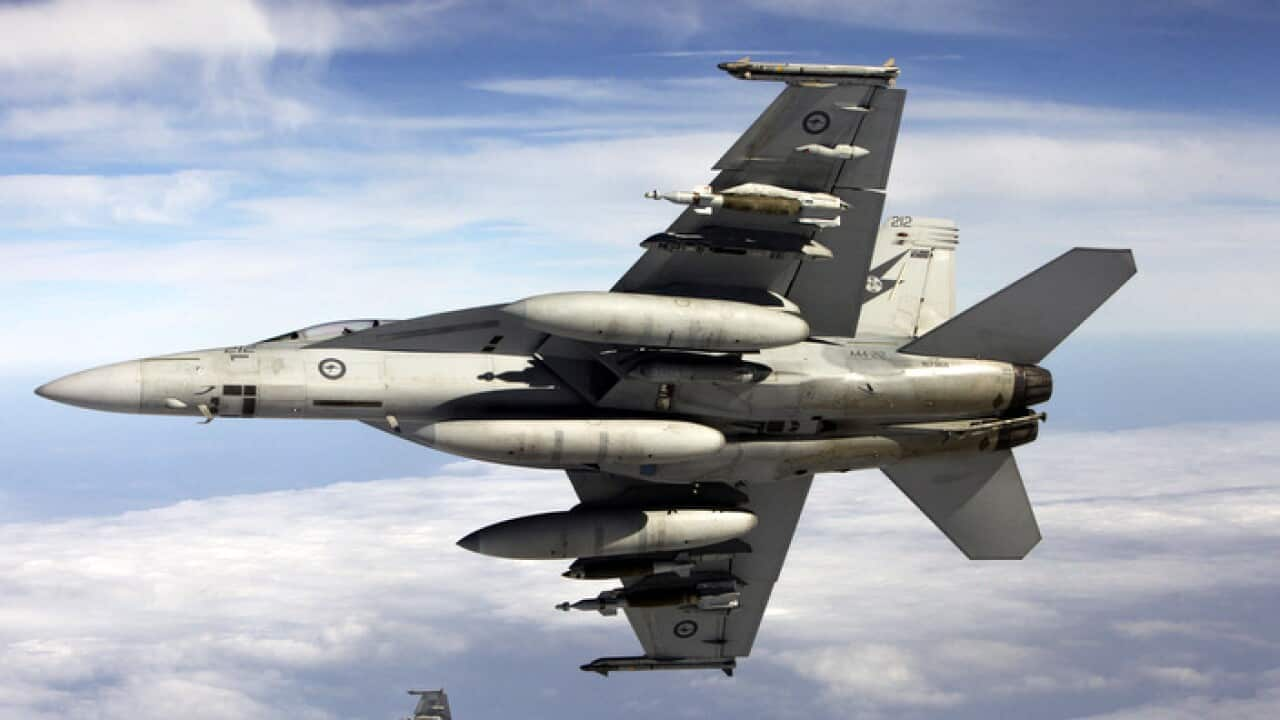French President Francois Hollande has told French soldiers training Iraqi special forces that involvement on the ground against the Islamic State group was key to preventing terror attacks at home.
"Taking action against terrorism here in Iraq is also preventing acts of terrorism on our own soil," he said at a base of Iraq's elite Counter-Terrorism Service near Baghdad.
Hollande had already visited in 2014 and remains the most prominent head of state to come to Iraq since the launch two and half years ago of a US-led coalition against the jihadists.
The French president, who is travelling with Defence Minister Jean-Yves Le Drian, will also stop in the autonomous northern region of Kurdistan during his one-day visit.
France is the second contributor to the US-led coalition that has carried out thousands of air strikes against IS in Iraq and Syria and provided military equipment, training and advice to Iraqi forces.
Iraqi forces completely collapsed when IS jihadists took over second city Mosul in June 2014 and swept across much of the country's Sunni Arab heartland.
The jihadists then gained more territory in August 2014, forcing hundreds of thousands of people to flee from areas that had been controlled by the Kurdish peshmerga forces.
Since it joined the United States in the coalition in September 2014, French aircraft have conducted 5,700 sorties, around 1,000 strikes and destroyed more than 1,700 targets, according to defence ministry figures.
France has 14 Rafale fighter jets that are stationed in Jordan and the United Arab Emirates and taking part in coalition operations.
It also has 500 soldiers training and advising elite Iraqi forces and CAESAR artillery vehicles stationed south of Mosul to provide support for ongoing operations to retake the city.
Australia, Italy and Britain are also part of the 60-member coalition supporting Iraq's efforts against IS.
Iraq forces have retaken 60 per cent of east Mosul
Iraqi forces have retaken more than 60 percent of eastern Mosul from the Islamic State group since the battle for the city began in mid-October, a top commander said Sunday.
"From east Mosul... more than 60 percent" has been recaptured from IS, Staff Lieutenant General Abdulwahab al-Saadi, a top commander in Iraq's Counter-Terrorism Service (CTS), told AFP.
He was speaking in an area southeast of Mosul, the city where IS proclaimed a cross-border "caliphate" in June 2014 after overrunning it and swathes of other Iraqi territory.
The eastern side of Mosul, which is split by the Tigris River, is the larger of the two, but more civilians live in the west, he said.
Saadi said the jihadists have reinforced east Mosul, where the fighting has been concentrated so far, even using a crane to lift explosives-rigged vehicles across a destroyed bridge.
"The crane was struck," he said.
Iraq's elite CTS forces are highly trained, well equipped and have spearheaded battle after battle against IS, but the going has been tough since Prime Minister Haider al-Abadi announced the beginning of the operation to retake Mosul on October 17 last year.
Hundreds of thousands of civilians remain inside Iraq's second city, a large urban area that gives IS myriad opportunities for ambushes, forcing Iraqi and allied forces to take precautions and slowing their advance.
CTS and other forces more recently deployed inside the city have been moving house-to-house, dodging sniper fire, suicide car bombs and booby traps to retake one neighbourhood after another.
CTS linked up with members of the Rapid Response Division, another elite Iraqi unit, on the border of the adjoining Al-Intisar and Al-Quds areas in eastern Mosul on Saturday, and a senior officer said the forces would form a joint front to advance.
Iraqi forces have yet to enter west Mosul, which is still completely held by IS.
IS overran large areas north and west of Baghdad in 2014, but Iraqi forces have since regained much of the territory they lost to the jihadists.
Mosul is now the last Iraqi city where IS holds significant territory, but the jihadists also still control parts of western Anbar province, and are able to mount frequent attacks in government-held areas, especially Baghdad.
On Thursday, Iraqi forces announced the "second phase" of the battle for eastern Mosul, marking the start of a new round of intensive fighting after progress had previously slowed to a crawl.
Abadi had pledged that the city would be retaken by the end of 2016, a goal that was not realised.
He more recently stated that the country would need three months to eliminate IS -- still an ambitious timeline given that it would mean retaking Mosul, clearing the jihadists out of Anbar and eliminating sleeper cells in government-controlled areas.





